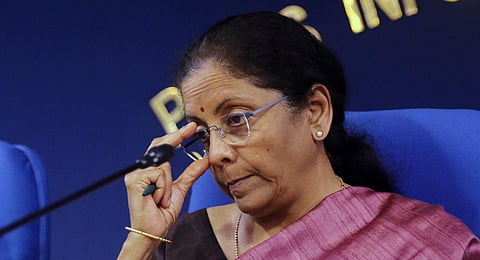

NEW DELHI: Ahead of the budget, the main worries for India’s economic Czars remain the triple challenge from the paucity of private investments which means they would have to budget for higher spending by the state, the loss of jobs in manufacturing which may force the government to grant higher subsidies to industry and the rising spectre of commodity inflation.
The Budget will be tabled in the Lok Sabha on February 1.
Top finance ministry officials said they are aware that private sector investments are on pause as businesses have been waiting and watching how demand would pick up and cash flows ease.
New projects in the December quarter were a mere Rs 87,000 crore compared to Rs 3.8 lakh crore in the March quarter last year, while projects which were completed were worth just Rs 61,000 crore.
“This has forced us to go in for a record infrastructure spending program — part of it budget funded and part of it through a series of investment vehicles which will be unveiled in the budget,” said North Bloc officials.
In all, the budget may allocate a record Rs 5-5.5 lakh crore towards capital expenditure spread across sectors.
Secondly, job losses in the manufacturing sector remains high even as overall unemployment came down to 6.5 per cent in January. In the December quarter, compared to pre-Covid days, there were 11 million less jobs in manufacturing.
This happened as jobs in farming spiked with an estimated 26.34 million people seeking work under the
MGNREGA scheme in December, 113 per cent more than in December 2019.
“Hopefully the spending on infrastructure and sops to industry such as the productivity-linked incentives and subsidies for new jobswill help,” said officials.
However, the biggest worry for North Bloc remains a commodity cycle and
excess liquidity linked to an inflationary spiral which could undo the nascent gains of a recovery.
Commodity prices have been rising sharply as the world opens up to business, fuelled in large part by rising demand for minerals by China whose economy seems to have recovered most from the pandemic.
The global fiscal support to economies hit by the pandemic has risen to an outstanding $14 billion by December 2020.
This money is increasingly finding its way into emerging economies like India where the rates of return are more.
While on one hand it could create asset bubbles, on the other it could feed into inflationary expectations as one section of the populace sees their incomes rise.